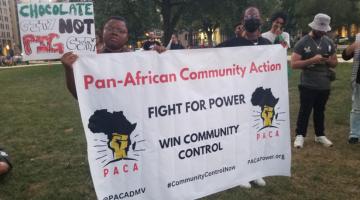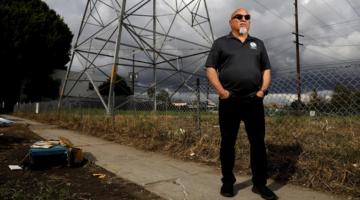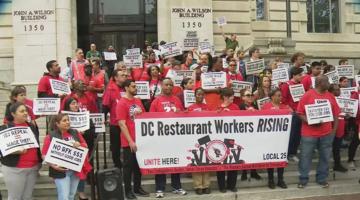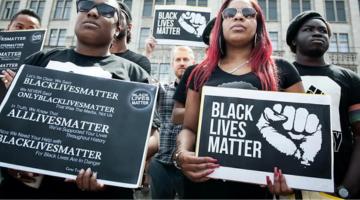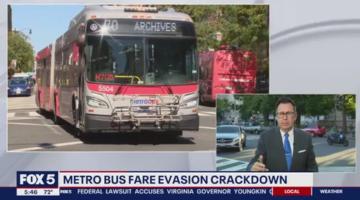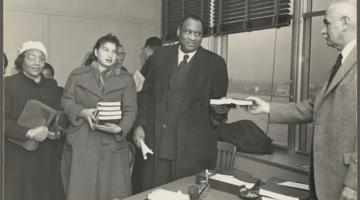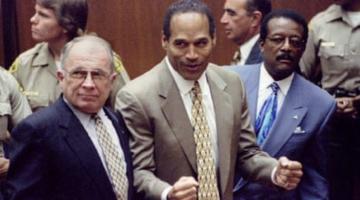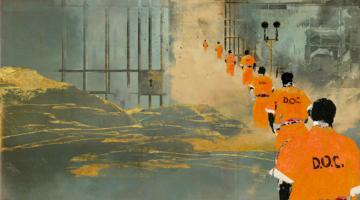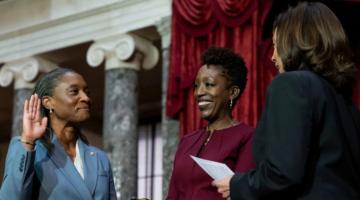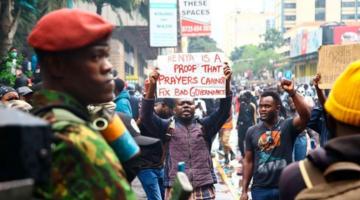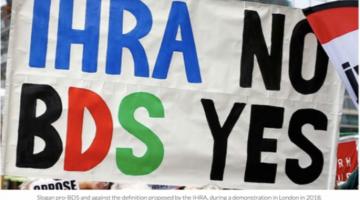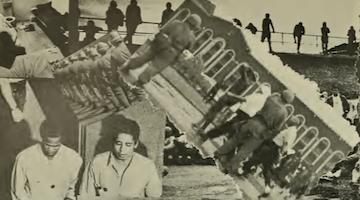The latest liberal discourse on crime offers useless panaceas to analyze the causes of violence and pathologizes communities while absolving the state of its role in creating these conditions.
In the June 2, 2025 issue of the New Yorker Magazine, the celebrated writer Malcolm Gladwell published a remarkable article entitled: “What We Get Wrong About Violent Crime.” It begins thusly:
Late on a Sunday night in June of 2023, a woman named Carlishia Hood and her fourteen-year-old son, an honor student, pulled into Maxwell Street Express, a fast-food joint in West Pullman, on the far South Side of Chicago. Her son stayed in the car. Hood went inside. Maxwell is a no-frills place—takeout-style, no indoor seating. It’s open twenty-four hours a day. Hood asked for a special order—without realizing that at Maxwell, a busy place, special orders are frowned upon. The man behind her in line got upset; she was slowing things down. His name was Jeremy Brown. On the street, they called him the Knock-Out King. Brown began to gesticulate, his arms rising and falling in exasperation. He argued with Hood, growing more agitated. Then he cocked his fist, leaned back to bring the full weight of his body into the motion, and punched her in the head.
When the argument had started, Hood texted her son, asking him to come inside. Now he was at the door, slight and tentative in a white hoodie. He saw Brown punch his mother a second time. The boy pulled out a revolver and shot Brown in the back. Brown ran from the restaurant. The boy pursued him, still firing. Brown died on the street—one of a dozen men killed by gunfire in Chicago that weekend.”
As is the case with so many macabre events today, the video of the confrontation that led to Brown’s slaying went viral. Prosecutors initially charged Carlishia Hood with Brown’s murder but later dropped the charges.
Gladwell’s retelling of the fatal encounter at Maxwell Street Express serves as the introduction to his stellar appraisal of a new book, Unforgiving Places: The Unexpected Origins of American Gun Violence, by a University of Chicago economist, Jens Ludwig. In characterizing Ludwig’s work, Gladwell’s review posits that homicides accrue either from “instrumental” violence—planned attacks such as a mass shooter, a mob hit, or perhaps a bank robbery gone awry—or more typically from spontaneous or “expressive” violence in which an argument between two ego-driven actors escalates into something far more serious. Citing FBI statistics, Ludwig claims that 77 percent of all homicides are representative of expressive violence, while instrumental violence accounts for only 23 percent. Writes Gladwell:
The central argument of ‘Unforgiving Places’ is that Americans, in their attempts to curb crime, have made a fundamental conceptual error. We’ve assumed that the problem is instrumental violence—and have fashioned our criminal-justice system around that assumption. But the real problem is expressive violence. The ongoing bloodshed in America’s streets is just Maxwell Street Express, over and over again.
And the solution? Better gardening, according to Gladwell, who writes:
Last summer, I was given a tour of a low-income neighborhood in Philadelphia by the Pennsylvania Horticultural Society. Its program Transforming Vacant Lots has led a concerted effort to clean up thousands of vacant lots scattered across the city. The approach is simple: clear the weeds, pick up the trash, plant a lawn, put up a post-and-rail fence. The initiative works on over twelve thousand lots, and the results are striking. What once looked like a struggling neighborhood now resembles, at a glance, a middle-class one.
What’s remarkable, though, isn’t just the aesthetics. It’s that the neighborhoods where these lots have been turned into green spaces have seen a twenty-nine-per-cent drop in gun violence. Twenty-nine per cent! The people haven’t changed. The pathologies haven’t changed. The same police force still patrols the neighborhood. The only new variable is that someone comes by to mow the lawn once or twice a month. As economists like to say: How do you model that?
In tandem with the 20th anniversary of Hurricane Katrina, President Trump’s federal takeover this month of local police in Washington D.C. has renewed the national discussion on crime, its causes and solutions. But as evidenced by Gladwell’s jejune review, these public discourses fail to interrogate crime in the context of a white settler society that is itself the ultimate expression of crimes against humanity, and is sustained, in the main, by transferring responsibility for its own trespasses from the colonizer to the colonized.
While the built environment does indeed play a role in crime rates, the notion that what is essentially an apartheid state can reduce its crime rates through gardening is the height of Orientalism, the term coined almost 50 years ago by the late Palestinian-American scholar Edward Said to describe the white settlers’ attempts to alibi his crimes and misdemeanors by essentially redefining crime.
Nearly 1,400 people did not die in Katrina’s deluge because they were looters, or “bestial” as the African American columnist for the Atlanta Journal-Constitution described the swarthy hordes seeking shelter in the New Orleans Superdome, but because the state abandoned large swaths of the city inhabited mostly by the descendants of Louisiana’s enslaved populations, emergency responders ignored Black survivors or police shot them as they sought higher ground. Similarly, the crime rate in the nation’s capital has declined significantly, but it satiates Trump’s white supremacist electoral base to portray the erstwhile Chocolate City as crime-ridden. In neighboring Maryland, state lawmakers are cracking down on a juvenile crime wave that does not exist.
A reliably silly writer who has made a fortune comforting white liberals with narratives that let them off the hook—he once described white police who shoot unarmed African Americans as suffering from a temporary form of autism—Gladwell has also argued, absurdly, that poor Blacks in New Orleans who were displaced by Katrina’s floodwaters were largely better off because the catastrophe afforded them an opportunity to reinvent themselves.
In the same fashion, he lauded Ludwig’s book which attributes homicides such as the one at Maxwell Street Express to the inferior emotional intelligence and problem-solving acumen of the participants, all of whom were African American, though Gladwell never mentions their race. He writes:
Neither had the cognitive space to consider that they were caught in a misunderstanding. They were in binary mode: I’m right, so you must be wrong. From there, things escalated:
Hood says to her son, who’s standing behind Brown, “Get in the car.”
Brown seems to think that comment is directed at him—another misreading of the situation.“WHO?!?” he says. “Get in the CAR?!?”
Hood says something that’s hard to make out from the video.
Brown says, ‘Hey lady, lady, lady, lady. GET YOUR FOOD. GET YOUR FOOD. If you say one more thing, I’m going to KNOCK YOU OUT.’ You can see his right fist, clenching and unclenching, over and over.
She says something that is again hard to make out on the video.
He says, ‘Oh my God I SAID if you say one more thing, I’m going to knock you out.’
At which point he punches her—hard.
An honest and more scholarly exploration of the fatal shooting might consider the environs that produced them. Sociologists correlate high homicide rates to high unemployment and poverty rates; known historically as the Black Belt, Chicago’s predominantly African American South side is home to both. Characterized by disinvestment schemes such as tax increment financing districts which divert property tax money from the neighborhoods to white elephant projects that benefit the wealthy, southside Chicago was also home to the late police commander, Jon Burge, whose detectives extracted confessions from more than 100 people, mostly Black, by shocking them with cattle prods, smothering them with plastic typewriter covers and pointing guns in their mouths while pretending to play Russian roulette.
Criminologists have for decades known that trauma is often passed down from one generation to another, and the vast majority of convicted murderers experienced or witnessed physical or sexual violence as children. While no one could go wrong by planting a few gladioluses and petunias in a community garden, the magic bullet for lowering violent crime rates is investing in communities like West Pullman where Brown was slain.
This is not to gaslight violent crime. A number of African Americans have taken to social media in the past week to cheer on the arrival of the National Guard in Washington D.C. on the grounds that increased police presence will abate violence that affects Black children.
But illustrative of his race-baiting motives, Trump has assigned the National Guard mostly to neighborhoods in the district’s northwest while violent crime occurs typically in African American neighborhoods on the city’s east side. Moreover, neither the police nor the National Guard are tasked with stopping crime but stimulating it as a means of exerting social control; their only mandate is to prevent the violence in the slums, favelas and townships from spilling over into white neighborhoods.
In his book, Street Corner Society, the sociologist William Foote Whyte ascribed the formation of youth gangs and the proliferation of crime to an urban social structure that alienated the working class. The book, published in 1943, was an instant bestseller, perhaps because it focused on Italian youths–rather than African Americans– living in a Boston neighborhood nearly 90 years ago.
Jon Jeter is a former foreign correspondent for the Washington Post. He is the author of Flat Broke in the Free Market: How Globalization Fleeced Working People and the co-author of A Day Late and a Dollar Short: Dark Days and Bright Nights in Obama's Postracial America. His work can be found on Patreon as well as Black Republic Media.

